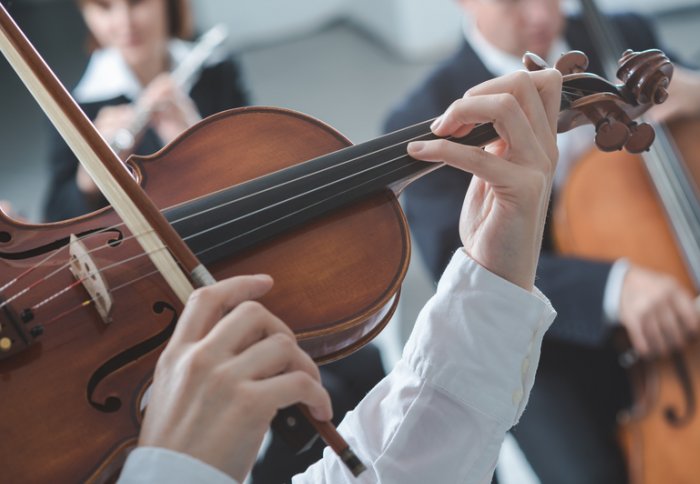Musicians have high prevalence of eating disorders, study finds
by Ryan O'Hare

They may live for the limelight and the call of their muse, but musicians may also be prone to eating disorders, according to new research.
A study of active musicians – including amateurs, students, professionals, and retired musicians – has found that they may have a high prevalence of food-related disorders, which could be explained by a combination of personality traits and the demands of the job.
According to the researchers, the apparent prevalence of eating disorders seen in musicians “could be due to their increased levels of perfectionism”, and the findings could help doctors to look for warning signs among a subset of patients.
In the study, published this month in the journal Eating and Weight Disorders - Studies on Anorexia, Bulimia and Obesity, researchers gave questionnaires to 301 self-reported musicians, focusing on their physical and mental health.
Striving for perfection
Over the course of 28 questions participants divulged key information about how anxious or depressed they were, their physical health and if they had ever suffered from a clinically diagnosable eating disorder.
The musicians performed across a broad range of musical genres – including jazz, hip hop, folk and rock – but the majority (85%) were classical musicians. Almost two-thirds of the participants were female, and the average age of the group was around 31 years of age.

Marianna Kapsetaki (pictured) is a concert pianist and current PhD researcher at Imperial
After analysing the questionnaire data, the researchers revealed almost one-third of the group (32.3%) reported having experienced an eating disorder, a higher proportion than the estimated 1.6 million adults thought to be affected in the UK.
Questions around mental health showed high rates of depression and stress among the group, and anxiety levels were higher still.
According to lead author Marianna Kapsetaki, a concert pianist and current PhD researcher in neuroscience at Imperial, the mental and practical strains arising from an unpredictable work schedule and constant travel may draw professional musicians into “a vicious circle of unhealthy eating”.
Dr Kapsetaki explained that the demand to perform and to look the part may also add to the stress of musicians, adding: “These pressures can also lead to anxiety and depression which are risk factors for eating disorders.”
Limiting factors
The authors highlight that a number of limiting factors may have influenced the outcomes, including the fact that musicians under the age of 18 were not incorporated in the study – a group in which eating disorders may be more prevalent – as well as a potential for more musicians with eating disorders to have taken part, based on the nature of the study.
Eating disorders are also statistically more likely to affect girls and women, which may have added to the prevalence reported by the largely female study group.
However, they add that making clinicians aware of the increased prevalence of eating disorders in musicians could enable them to provide additional care, helping to optimise their health, and ultimately, their performance.
Dr Kapsetaki said: “Performing Arts Medicine is a fairly new field and I believe there will be many more interesting projects in the future relating to the mental health of performing artists.”
She added: “Future studies could compare musicians with and without eating disorders with behavioural tests and neuroimaging to see if there are any differences in brain structure.”
-
‘Eating disorders in musicians: a survey investigating self-reported eating disorders of musicians’ by Kapsetaki, M. and Easmon, C. is published in the Eating and Weight Disorders - Studies on Anorexia, Bulimia and Obesity.
Dr Kapsetaki’s research was undertaken at UCL as part of her MSc in Performing Arts Medicine and received the ‘Best MSc Dissertation’ Award from the British Association of Performing Arts Medicine.
Article text (excluding photos or graphics) © Imperial College London.
Photos and graphics subject to third party copyright used with permission or © Imperial College London.
Reporter
Ryan O'Hare
Communications Division